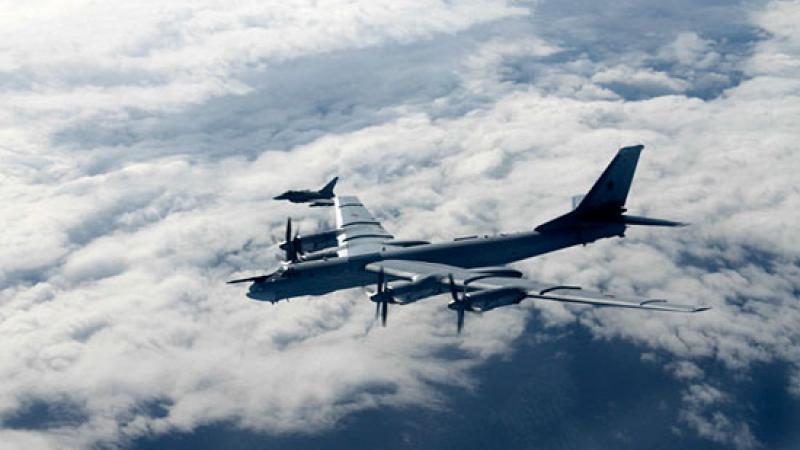FBI aggressively seeking tipsters in Jan. 6 probe, despite spotty track record fielding terror tips
5 cases of FBI failure to follow up on advance warning of violence.
For weeks following the January 6 Capitol breach, the FBI encouraged anyone believing they could identify a member of the Capitol mob to share the information with the bureau. In the past six months, dozens of participants in the riot have been turned in to the FBI by friends, neighbors, and family members. The Washington Post has detailed accounts of adult children who reported their parents and neighbors who called in faces they recognized, just days after the episode.
In early July, the FBI's official Twitter account sent out a message encouraging "family members and peers" of potentially violent extremists, to learn "how to spot suspicious behaviors and report them to the #FBI." While the FBI continues its aggressive pursuit of members of the January 6 mob based on tips provided by civilians and loved ones — the bureau has not always been so assiduous in soliciting or following up often critical tips about potential violent extremists from informants, allies, and members of the broader community.
Here are five notorious examples of FBI failure to follow through on tips about potentially violent extremists and gunmen:
1. Pulse nightclub shooting in Orlando: In 2016, Omar Mateen, a 29-year-old American of Afghan descent, killed 49 people and injured an additional 53 at a gay nightclub in Orlando, Fla. The Pulse nightclub shooting was the single deadliest shooting by a single gunman in United States history until the Las Vegas Strip massacre more than a year later.
What the public did not learn until well into the trial of the estranged wife of the terrorist was that Mateen's father Seddique Mateen — an immigrant from Afghanistan who hosted an anti-American talk show during which he often praised the Taliban — acted as an FBI informant for 11 years prior to his son's shooting rampage.
It remains unknown exactly what the elder Mateen informed the FBI about. However, it has been established that the younger Mateen was twice interviewed by the FBI and twice released prior to the Pulse rampage.
Mateen's mosque had contacted the FBI to share concerns about the young man, and coworkers had contacted both the FBI and a local sheriff's office to express fear that he could be a threat to public safety.
2. The 9/11 "20th hijacker": In the summer of 2001, the FBI field office in Minneapolis received a tip from instructors at the Pan Am flight school near Minneapolis-St. Paul reporting that a male student who spoke poor English had shown up and requested flight lessons for a 747 jet. On Aug. 15, 2001, FBI agents arrived at Zacarias Moussaoui's hotel, but ultimately left after briefly questioning him.
Earlier that year, a report from a Phoenix, Ariz. field agent raised questions about a number of Middle Eastern men who had enrolled in flight school. The report was buried by the FBI's bureaucracy, as was the Minnesota office's request to probe Moussaoui's laptop and personal belongings — despite a French intelligence report shared with American agents that would, as one French justice official put it, "make you want to check this guy out every way you can."
"Anyone paying attention would have seen he was not only operational in the militant Islamist world but had some autonomy and authority as well," continued the official.
For weeks, officials at FBI headquarters undermined the Minnesota office's attempts to gain permission to obtain a warrant to wiretap and search the computer and belongings of Moussaoui.
Only after the attack on the World Trade Centers did it become clear just what the FBI had missed, when Minnesota Special Agent Coleen Rowley wrote a letter that made its way to D.C. describing what had occurred in her office.
It is unclear whether Moussaoui was meant to be a part of the 9/11 attack, or whether he was going to participate in a different terror plot. There is no hard evidence that any of the 9/11 hijackers corresponded directly with Moussaoui, however post-attack investigation yielded letters from al-Qaeda operatives and a notebook that connected him to one of the attackers.
Rowley, whose FBI supervisor went on to be promoted, wrote in her letter: "It's at least possible we could have gotten lucky and uncovered one or two more of the terrorists in flight training prior to Sept. 11. There is at least some chance that ... may have limited the Sept. 11th attacks and resulting loss of life."
3. The 2013 Boston Marathon bombing: In 2011, Russian authorities warned the FBI about Tamerlan Tsarnev, one of the two Chechen brothers who carried out the bombing that killed three people and wounded more than 260.
Authorities missed chances to detain Tsarnev, despite reports that the Russian intelligence agency FSB had contacted the FBI more than a year prior to the bombing, to warn that Tsarnev had known associations with militant Islamic radicals.
A report from NBC News found that the FBI had opened an investigation of Tsarnev, that he was interviewed in person, and that a memo was sent to the Customs and Border Protection database that would, in theory, trigger a notification when he left or reentered the country. The FBI closed the investigation in June 2011, though the FSB continued to warn U.S. intelligence agencies.
4. Parkland school shooting: Nikolas Cruz, the 19-year-old gunman whose shooting rampage at Marjory Stoneman Douglas High School left 17 people dead, had been called to the FBI's attention on two separate occasions before the attack he carried out. He was also the subject of dozens of previous 911 calls.
In September 2017, Cruz left a comment on a YouTube video posted by a Mississippi bail bondsman. He wrote, "Im going to be a professional school shooter." Ben Bennight, the bondsman, alerted the FBI in addition to reporting the comment. The bureau followed up with Bennight, but not with Cruz.
The second tip came just weeks before the shooting in early January 2018. A caller who agents say was close to the suspect warned the FBI that Cruz had a "desire to kill people," leaving the caller deeply concerned about "the potential of him conducting a school shooting."
That information never reached the Miami field office. In the days after the shooting, the bureau said that "protocols were not followed."
5. Fort Hood massacre: The FBI ignored warnings about Nidal Hasan, the former Army major who killed 13 people at Fort Hood in 2009. Hasan had expressed his support for suicide bomb attacks and civilian killings during correspondence with known terrorist Anwar al-Awlaki, a propagandist for Al Qaeda in the Arabian Peninsula.
Members of two FBI anti-terrorism task forces saw emails between Hasan, an Army psychiatrist, and al-Awlaki beginning nearly a year before the attack. Hasan at the time was researching the effects of combat in Iraq and Afghanistan, which led the two task forces to forego opening a formal investigation.
FBI agents in San Diego asked the bureau's Washington field office to speak to Hasan's bosses when they discovered Hasan had been in contact with al-Awlaki, a former resident of San Diego. But, according to a report compiled by former FBI Director William Webster, the FBI agents in Washington felt that interviewing American Muslims like Hasan who visit extremist websites was a sensitive issue. They refrained from contacting Hasan's bosses at DOD.
"It shows you the length of the political correctness stuff going on," said Congressman Mike McCaul (R-Texas) at the time.
FBI-agent-turned-whistleblower Jane Turner cites two systemic flaws to explain the recurring FBI misses like those outlined above: "The management system in the bureau, and the absolute absence of oversight."
She described the management culture inside the agency as "kiss up, kick down," an insular network in which "good ole boys" protect their own and career advancement is predicated not so much "on what you know, but on who you know."
Turner sees the obvious failures in communication as part of a broader pattern involving the 56 field offices around the country and their relationship with FBI Headquarters in Washington.
None of the Special Agents in Charge (SAC) are inclined to "open themselves up to the liability" of opening a difficult and far-reaching investigation or calling a significant issue to the attention of the top dogs, she said. "Each prince has his territory," she said of the 56 SACs who run the field offices, "and it's best not to get in trouble."
When a big failure does occur, as in the five cases cited above, "it's handled by upper management," and because of that dynamic and the aforementioned lack of oversight "nothing ever changes," she lamented.













